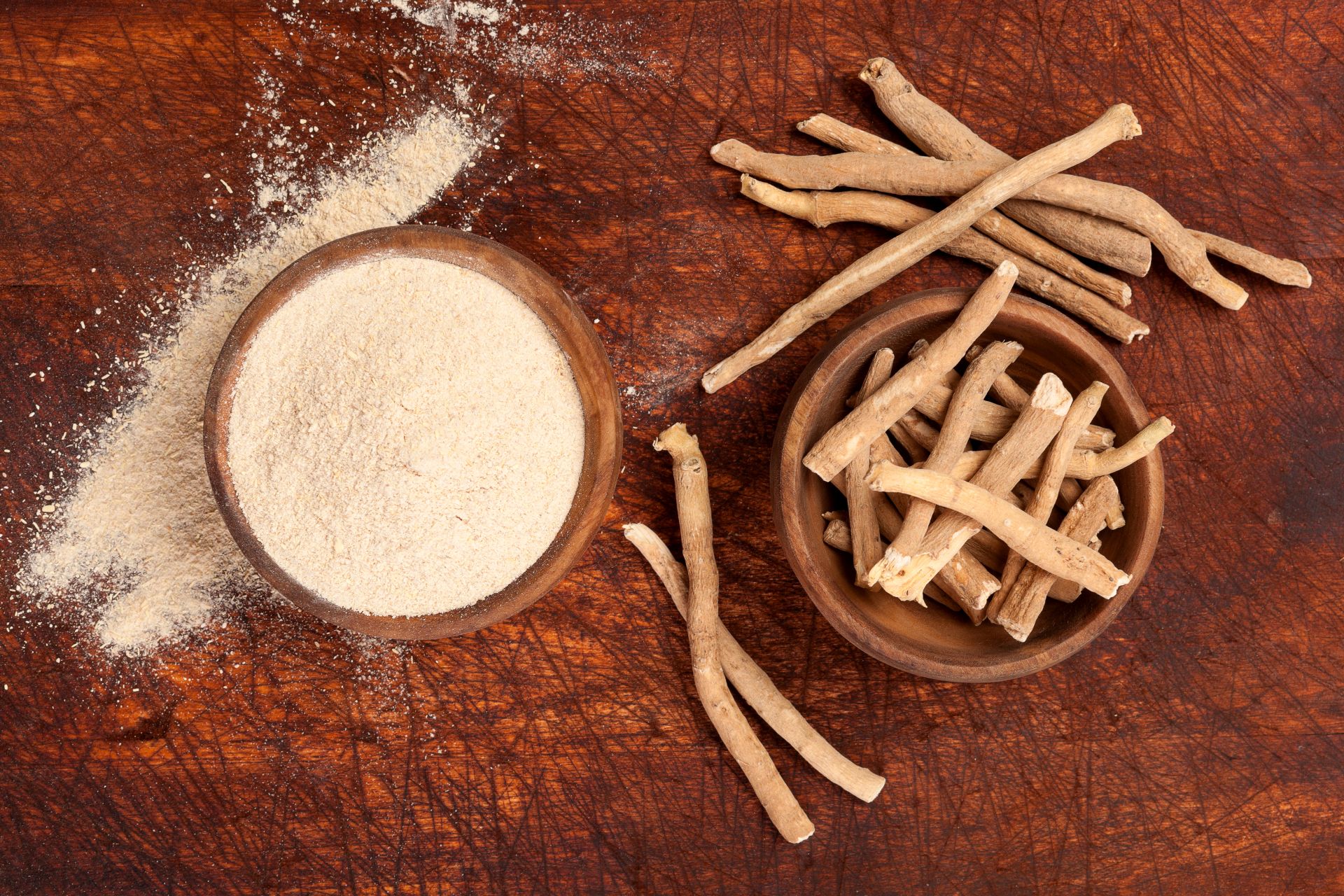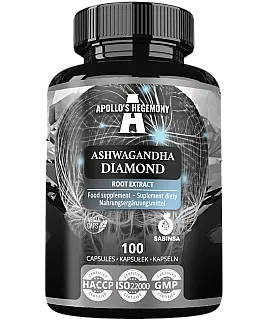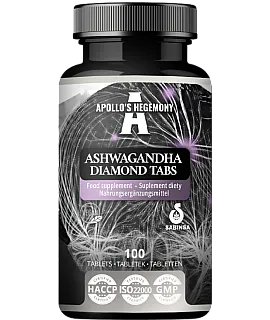What dosage of Ashwagandha is most effective?

You are struggling with stress, mood decline, low immunity, fatigue, sleep disorders... and you choose Ashwagandha. An excellent choice! However, this is only the first step, and the second (equally important) involves the correct choice of dosage and the overall pattern of taking the supplement. In the case of Ashwagandha, there are at least several dosage regimens. It's worth familiarizing yourself with them so that you can choose the optimal one for you to start with, but also so that you know what your options are for changes when that first regimen doesn't work out.
- Ashwagandha dosage in clinical trials
- What is the best way to dose Ashwagandha?
- Ashwagandha - dosage in the morning or evening?
- Don't confuse the dosages of extracts and powdered roots!
Ashwagandha dosage in clinical trials
One of the most frequently cited clinical studies concerns the effects of Ashwagandha on reducing stress and anxiety. In it, very good results were noted with supplementation of the plant's root extract twice a day at 300 mg for 60 days.
There are also many human studies involving KSM-66 extract standardized to >5% vitanolides. The vast majority used a dosage of twice daily 300 mg (possibly 2x 125 mg) for 8-12 weeks. These studies noted improved stress tolerance, reduced anxiety, improved subjective quality of life and improved sleep.
Several human studies have also been conducted with Sensoril extract, which is standardized to >8% vitanolides with >32% oligosaccharides. In them, this dosage regimen appeared: 250 mg per day for the first week, and then 500 mg per day for the next 11 weeks. In these studies, a reduction in symptoms of stress, depression and anxiety was noted in people with schizophrenia.
Studies with Shoden extract were conducted using 120 mg daily 2 hours before bedtime for 6 weeks (noted improvement in sleep quality) and using 240 mg daily after dinner for 60 days (reduced anxiety and stress).
What is the best way to dose Ashwagandha?
For good quality extracts that are standardized at a minimum of 5% vitanolides, standard daily doses are in the 300-600 mg daily range. It is worth targeting this ceiling when the goal is to reduce stress and improve mood.
A popular choice of Ashwagandha supplements, which have good user reviews, have 500 mg of extract per capsule. In this case, 1 capsule per day is usually fully sufficient. 2 capsules per day are used by the most demanding users, athletes or people with low sensitivity to the effect.
It is also worth remembering the appropriate duration of use of Ashwagandha. This should be a minimum of 8 weeks, and it is worth considering 12 weeks of supplementation for full effects.
Ashwagandha - dosage in the morning or evening?
It depends.
If you expect an effective effect on reducing anxiety and stress during the day, such as at work, then try morning dosing. However, keep an open mind to observe your reaction. Although not standard, some people notice drowsiness when taking Ashwagandha in the morning. There are several tips for this: reduce the dose, move the serving relative to a meal (before or after it - try both options), take it at the same time as your morning coffee, and as a last resort, take the entire daily serving in the afternoon or evening.
You can locate a portion of Ashwagandha in the evening when your main goal is to support evening relaxation and improve sleep quality. It is also suitable when you expect to improve your immunity on a daily basis, for example.
Why not both? Well, that's why! It all depends on your needs, and if you want to benefit from the properties of Ashwagandha around the clock by reducing stress and nervousness during the day, and then support sleep at night, then you can divide the daily dose into two servings, which you take in the morning and in the evening. As long as dividing into two servings at different times is not a problem for you (and you will remember them), then dosing in the morning and evening may be the best solution.
Don't confuse the dosages of extracts and powdered roots!
You need to know exactly what is in your supplement. Check whether it is a standardized extract or simply dried and ground herb. There is a lot of variation in dosage.
A popular mistake is when someone, enticed by the low price, buys an Ashwagandha supplement without the standardization information, and uses dosages that are effective for extracts. Ashwagandha is Ashwagandha, right? Well, no! While doses of 300-600 mg per day are sufficient with extracts, with the powdered root you need to use doses several times larger, calculated in grams, to expect similar results.
Sources:
-
Chandrasekhar K, Kapoor J, Anishetty S. A prospective, randomized double-blind, placebo-controlled study of safety and efficacy of a high-concentration full-spectrum extract of ashwagandha root in reducing stress and anxiety in adults. Indian J Psychol Med. 2012;34(3):255-262. doi:10.4103/0253-7176.106022
-
Speers AB, Cabey KA, Soumyanath A, Wright KM. Effects of Withania somnifera (Ashwagandha) on Stress and the Stress-Related Neuropsychiatric Disorders Anxiety, Depression, and Insomnia. Curr Neuropharmacol. 2021;19(9):1468-1495. doi:10.2174/1570159X19666210712151556
 ⮜ Previous article
⮜ Previous article
Caffeine and energy levels - what are the relationships?
 Next article ⮞
Next article ⮞


